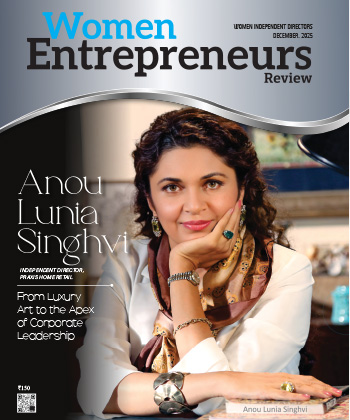
Story Telling: Women's Trusted Tool for Igniting Empowerment & Catalyzing Societal Transformation
By: WE Staff
In the tapestry of human history, storytelling has burned brightly, casting its illuminating glow across cultures and generations, knitting hearts together with its threads of emotion and wisdom. Yet, the voices of women have often been stifled by the constraints of patriarchal structures.
Today, however, a remarkable transformation is underway. Women are embracing storytelling not merely as a means of expression, but as a potent instrument to unravel these constraints, challenge the status quo, and catalyze social metamorphosis.
Through their stories, women kindle sparks of empowerment, rewriting the narrative of their lives, and uniting diverse perspectives into a harmonious chorus of change. Just as stories have the power to connect the past with the present, women's narratives are weaving a future where their voices resonate, untamed and unstoppable.
The Transformative Power of Storytelling
Storytelling is a bridge that spans generations and cultures, carrying the wisdom, dreams, and experiences of humanity. It's a tapestry where women are now weaving their narratives, revealing the intricacies of their lives, and opening doors for others to step into their shoes. Through storytelling, women shatter the silence that once bound them, casting light on issues that demand change.
Consider the global #MeToo movement, catalyzed by Tarana Burke and amplified by Alyssa Milano. In its wake, countless women shared their stories of survival, exposing the pervasive issue of sexual harassment. The movement became a beacon of solidarity, exposing the power of storytelling to unite survivors and challenge systems of oppression.
Embracing Diverse Perspectives
Storytelling extends its arms to embrace the vibrant tapestry of womanhood, transcending cultural, ethnic, and social boundaries. Women from all walks of life now stand as torchbearers of diverse perspectives, forging paths that defy stereotypes and amplify marginalized voices.
Intersectional storytelling ventures, like "Our Stories Matter," delve into the experiences of LGBTQ+ women of color, dismantling the monolithic perception of womanhood. In history, Frances Ellen Watkins Harper, an African-American poet, and abolitionist, used her storytelling prowess to advocate for women's rights and challenge racial prejudices. Her verses became a call to action, urging women to claim their voices and confront injustice.
Healing Through Storytelling
Stories are not just a means of communication; they possess the incredible power to heal wounded souls. For women who have endured trauma and oppression, storytelling becomes a cathartic release, a pathway to reclaiming agency, and a journey toward healing.
Research conducted at the University of Missouri underscored the therapeutic impact of narrative therapy. Women who had suffered from intimate partner violence found solace and strength through sharing their stories. These narratives transformed into tools of resilience, decreasing anxiety, and amplifying empowerment. Through storytelling, women rewrite the chapters of their lives, transforming pain into power.
Inspiring Change Through Oral Storytelling
Oral storytelling stands as a cultural cornerstone that women have wielded for generations. From ancient folktales to modern-day spoken word performances, oral storytelling binds communities and preserves histories.
In Afghanistan, where the Taliban stifles women's voices, the Mirman Baheer storytellers use the rhythmic power of poetry to navigate through oppression. Their verses traverse barriers, uniting women in shared struggles and dreams. Oral storytelling is a tool of empowerment that transcends literacy divides, enabling women to uplift each other through the strength of their voices.
Empowering Through Literature
The written word has been a battleground for women's empowerment, where pens have served as weapons of change. Women authors have used literature to deconstruct stereotypes, expose injustices, and propel movements forward. Literature encapsulates women's resilience, like Malala Yousafzai's "I Am Malala," which recounts her fight for education amidst adversity. Chimamanda Ngozi Adichie's "We Should All Be Feminists" stands as a manifesto for gender equality. The echoes of these narratives resound through time, kindling sparks of empowerment in the hearts of readers worldwide.
Amplifying Voices with Visual & Digital Storytelling
In a world dominated by visual stimuli, visual storytelling emerges as a captivating force for change. Photographs, films, and digital media transcend language barriers, bearing witness to the untold stories of women.
The Fearless Collective's mural art in India challenges the silence surrounding sexual violence, empowering survivors and sparking societal awareness. Digital storytelling galvanizes change beyond borders, as The Girl Generation in Nigeria employs online platforms to eradicate female genital mutilation. These digital narratives foster connections, forming a global sisterhood that transcends geographical constraints.
As this journey through the realm of storytelling draws to a close, one undeniable truth emerges: stories are not mere words; they are catalysts for transformation. Women's empowerment thrives within the narratives they share, the experiences they heal from, and the perspectives they embrace. Each woman holds within her the power to reshape the world through her stories. From the illuminated path of history to the uncharted territories of the future, women's voices echo with resilience, inspiration, and change.
It's a call to action a reminder that within every woman resides a storyteller, a change-maker, and a force that can shape a world of equality, unity, and empowerment. As you embark on your storytelling journey, remember that your story has the potential to change lives starting with your own.
Most Viewed
- 1 Women's Health Startup HerMD Closing Doors Amid Industry Challenges
- 2 5 Famous Women in Indian Armed Forces
- 3 Saudi Women No longer Require Male Permission for Clothing Choices, says Prince MbS
- 4 Kolkata Medtech Startup Innovodigm Raises Rs 5.5 Crore Seed Funding Led by IAN Group
- 5 Yamunanagar's Kashish Kalra Honoured after Securing 111th Rank in UPSC Civil Services Exam
- 6 Madurai Appoints Its First Woman Corporation Head
- 7 IAS Vijayalakshmi Bidari Appointed as the new Nagpur Divisional Commissioner
- 8 American Entrepreneur Lucy Guo Overtakes T Swift to become Youngest Female Billionaire
- 9 ICC Women's World Cup 2025 Trophy Showcased at Indore's Holkar Stadium
- 10 Aparna Saxena's Beauty Venture AntiNorm Launches in India
- 11 Vidya Nataraj Co-Founded BlueStone Jewellery & Lifestyle files IPO
- 12 5 Women Freedom Fighters of India
- 13 Dr. G Krishnapriya appointed as CEO for Trichy
- 14 M3M & Sirona Partner to Introduce Menstrual Hygiene Vending Machines in 15 Locations
- 15 Punjab Govt launches SHE Cohort 3.0 Supporting Tech-led Women Startups
- 16 Indian origin Lawyer, Sweena Pannu appointed as the US New Superior Court Judge
- 17 The Aurora Tech Award recognizes 4 Indian Women-led Startups
- 18 Kerala's Republic Day parade featured an all-female tableau
- 19 Manisha Kabbur Becomes Karnataka's First Woman International Karate Coach
- 20 Director K. S. Ravikumar's Daughter Maalica Ravikumar Launches Life Coaching Company 'Evergrowth Academy' for Women
- 21 Leezu's Raises Pre-Seed Funding to Accelerate Growth in Sexual Wellness Industry
- 22 Sattu: Super-easy summer drink for PCOS gut healing
- 23 Swathi Nelabhatla creates Sitha App, India's First Women-Exclusive Gig Platform
- 24 7 Timeless Female Kathak Dancers & their Iconic Legacies
- 25 Meet 7 Iconic Women Architects of Modern India & their Most Impactful Work
- 26 This Woman-led Insuretech Startup is Helping Bridge the Education Financing Gap in India
- 27 Women Leaders Share Lessons Learnt from India Women's WC Win
- 28 5 Enterprising Women Founders Powering Singapore's Tech & Innovation Landscape
- 29 4 Women. 4 Stories. One Vision for Smarter, Stronger Healthcare
- 30 Global Gender Gap Narrows to 68.8%, But Full Equality 123 Years Away: WEF Report 2025
- 31 Changemakers: 7 Women Entrepreneurs Taking the Make in India Movement Forward
- 32 Meet Lucy Guo, The Youngest Self-Made Female Billionaire Disrupting Tech
- 33 How Women are Driving India's Festive Online Shopping Surge






